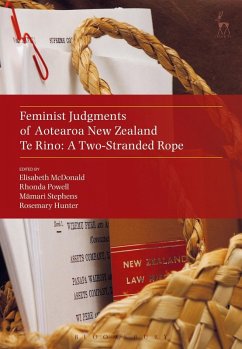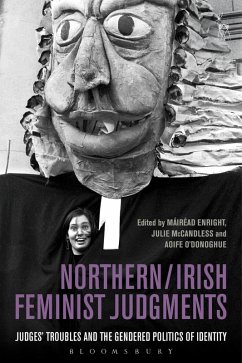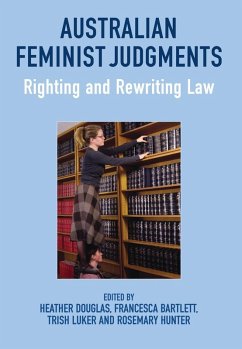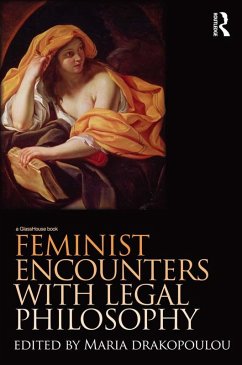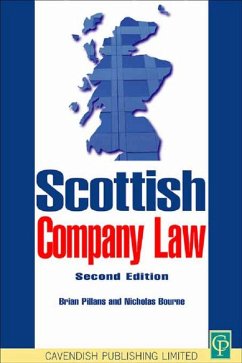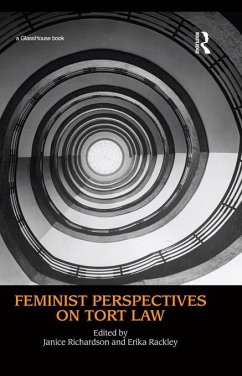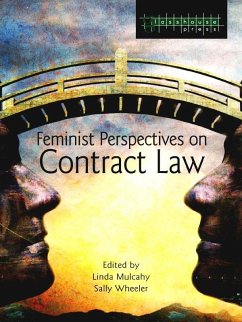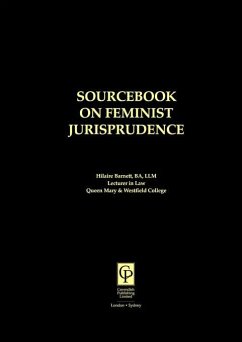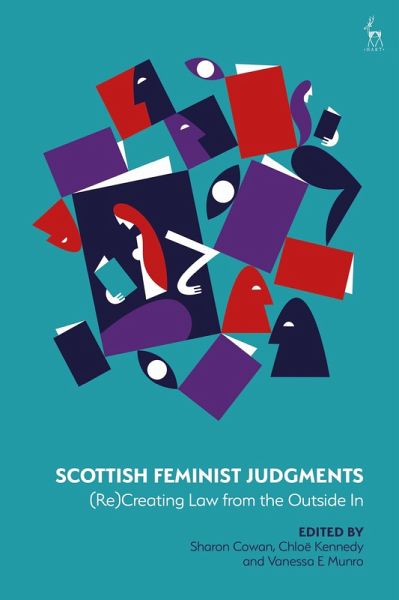
Scottish Feminist Judgments (eBook, PDF)
(Re)Creating Law from the Outside In
Redaktion: Cowan, Sharon; Munro, Vanessa E; Kennedy, Chloë

PAYBACK Punkte
21 °P sammeln!
An innovative collaboration between academics, practitioners, activists and artists, this timely and provocative book rewrites 16 significant Scots law cases, spanning a range of substantive topics, from a feminist perspective. Exposing power, politics and partiality, feminist judges provide alternative accounts that bring gender equity concerns to the fore, whilst remaining bound by the facts and legal authorities encountered by the original court.Paying particular attention to Scotland's distinctive national identity, fluctuating experiences of political sovereignty, and unique legal traditi...
An innovative collaboration between academics, practitioners, activists and artists, this timely and provocative book rewrites 16 significant Scots law cases, spanning a range of substantive topics, from a feminist perspective. Exposing power, politics and partiality, feminist judges provide alternative accounts that bring gender equity concerns to the fore, whilst remaining bound by the facts and legal authorities encountered by the original court.
Paying particular attention to Scotland's distinctive national identity, fluctuating experiences of political sovereignty, and unique legal traditions and institutions, this book contributes in a distinctive register to the emerging dialogue amongst feminist judgment projects across the globe. Its judgments address concerns not only about gender equality, but also about the interplay between gender, class, national identity and citizenship in contemporary Scotland.
The book also showcases unique contributions from leading artists which, provoked by the enterprise of feminist judging, or by individual cases, offer a visceral and affective engagement with the legal. The book will be of interest to academics, practitioners and students of Scots law, policy-makers, as well as to scholars of feminist and critical theory, and law and gender, internationally.
Paying particular attention to Scotland's distinctive national identity, fluctuating experiences of political sovereignty, and unique legal traditions and institutions, this book contributes in a distinctive register to the emerging dialogue amongst feminist judgment projects across the globe. Its judgments address concerns not only about gender equality, but also about the interplay between gender, class, national identity and citizenship in contemporary Scotland.
The book also showcases unique contributions from leading artists which, provoked by the enterprise of feminist judging, or by individual cases, offer a visceral and affective engagement with the legal. The book will be of interest to academics, practitioners and students of Scots law, policy-makers, as well as to scholars of feminist and critical theory, and law and gender, internationally.




